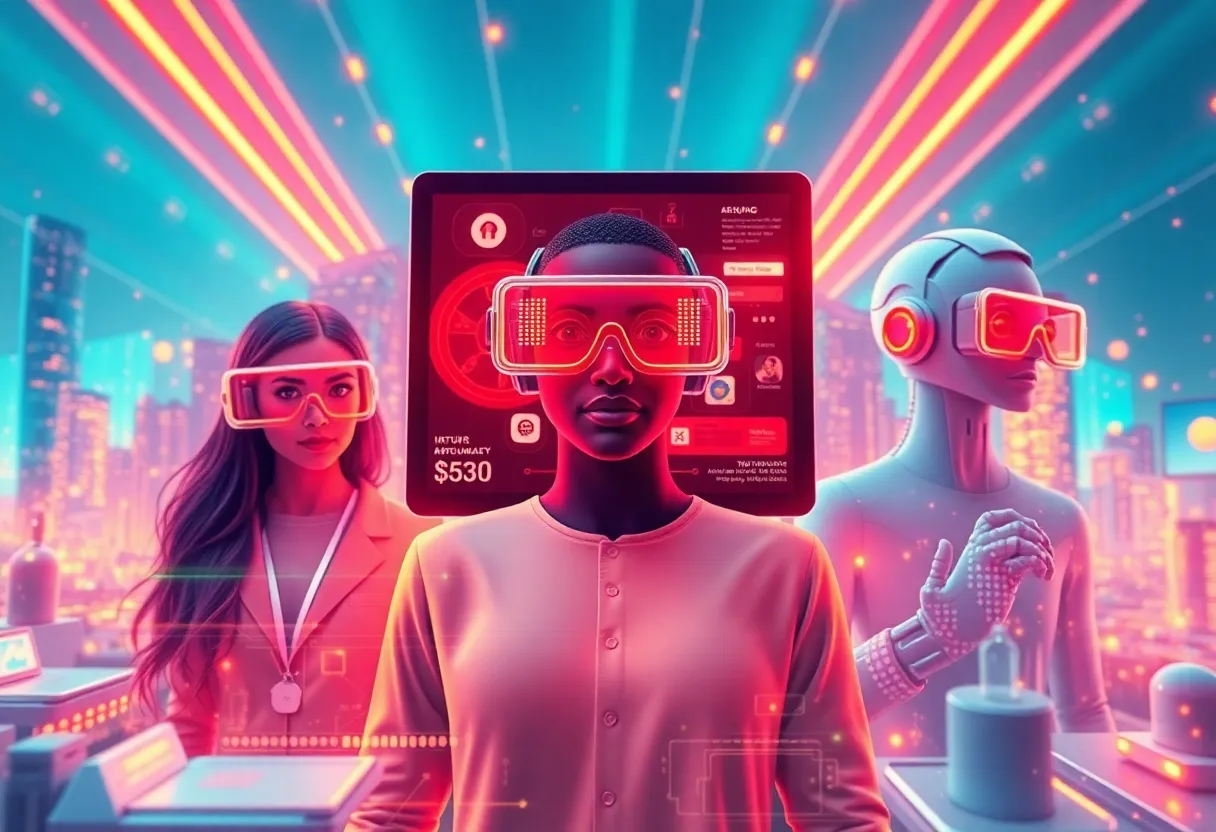News Summary
As the digital advertising landscape evolves, B2B marketers must navigate changing consumer behaviors, privacy concerns, and the rise of new technologies. Key trends include a focus on privacy in advertising, the adaptation post-cookie phase, the emergence of micro-influencers, the significance of culturally relevant storytelling, and the impact of artificial intelligence. Marketers who embrace these trends can build trust and thrive in the competitive B2B space.
Top 5 Digital Advertising Trends Shaping B2B Marketing in 2025
As we look ahead to 2025, it’s clear that the digital advertising landscape is anything but static. From technological advancements to shifting customer behaviors and strict regulations, the environment that B2B marketers operate in is continuously changing. The good news? By staying on top of these trends, marketers can not only adapt but thrive as we venture into this new era of digital marketing.
The Privacy Priority
One of the most significant shifts we’ll see is the increasing focus on privacy in advertising. B2B decision-makers are starting to prioritize marketing strategies that respect their privacy while still offering the personalized experiences they crave. This change is fuelled by growing concerns over data privacy and a desire for authentic connections.
In light of these trends, contextual advertising is emerging as a powerful solution. Instead of using personal data, contextual advertising focuses on showing relevant ads based on the content a user is engaging with. This approach aligns with user expectations and is a privacy-centric strategy that’s gaining traction. In fact, global spending on this form of advertising is estimated to grow annually by 13.8% through 2030.
Adapting After Cookies
The upcoming phase-out of third-party cookies presents a challenge for many marketers. However, it’s also an opportunity to adapt to the preferences of empowered buyers, who are now looking for genuine connections. B2B marketers will need to rethink their strategies and embrace this shift if they want to remain relevant in the marketplace.
The Rise of Micro-Influencers
While micro-influencers have typically been overshadowed by their celebrity counterparts in B2C markets, they’re starting to make waves in the B2B sector as well. Thanks to their credibility and deep expertise in specific niches, these influencers are becoming essential players in shaping opinions and driving engagement. Marketers who leverage the authenticity and relatability of micro-influencers can expect to see enhanced brand trust and customer loyalty.
Culturally Relevant Storytelling
As we make our way through an increasingly diverse marketplace, the importance of multicultural insights and culturally relevant storytelling can’t be overstated. Successful B2B marketing campaigns in 2025 will effectively engage different buyer segments by weaving in narratives that reflect their unique perspectives and experiences. This approach not only strengthens connections but also resonates on a deeper level.
The AI Revolution
No discussion of the future of B2B marketing is complete without mentioning artificial intelligence (AI). This technology is transforming how we approach advertising by automating processes and analyzing vast amounts of data. While AI can bring significant efficiency to campaigns, it’s crucial to remember that human creativity and strategic insight are irreplaceable. In 2025, we anticipate that B2B brands will increasingly use AI for actionable insights and campaign optimization, but talented marketing professionals will still be necessary to craft compelling narratives.
Emphasizing Trust through Transparency
In the wake of events like elections, transparency in digital advertising practices will become even more critical. Brand trust hinges on how transparent companies are about their practices. This sentiment will be especially important in a post-cookie world, where ethical AI use and responsible campaign execution are in higher demand. Building trust through transparency can greatly influence buyer decisions, especially in a competitive landscape.
Agility in Adtech Consolidation
Marketers should also keep an eye on the ongoing consolidation in the adtech space. As companies merge and acquire advanced capabilities, navigating this landscape will present both challenges and opportunities. Agility and adaptability will be essential for B2B brands looking to stay ahead of the game.
The Road Ahead Is Bright
2025 is set to be a transformative year for B2B marketing. By embracing privacy-first strategies, engaging in culturally relevant storytelling, and harnessing the power of AI, B2B brands can lead with innovation and purpose. The trends we’ve explored emphasize the necessity for marketers to connect meaningfully with their audiences to achieve success in an ever-evolving digital landscape. Whether you’re prepared or just starting to think about these changes, remember: keeping your finger on the pulse of these trends is key to thriving in the B2B marketing world.
Deeper Dive: News & Info About This Topic
HERE Resources
Exciting Digital Marketing Trends to Watch for in 2025
Exploring the Exciting World of Digital Advertising Stocks in 2025
The Digital Marketing Landscape in 2025: What Businesses Need to Know
Digital Marketing Takes the Stage in Manufacturing – A New Era of Growth
Marketing Strategies for 2025: Insights from the Future
Bright Lights, Big Trends: The Evolving World of Influencer Marketing in 2025
Exploring the Evolving World of Marketing
Unlikely Partnership: IBM Teams Up with UFC for Exciting New Sponsorship
Surviving and Thriving: Content Marketing on a Budget
Transforming Marketing in the Heart of the City
Additional Resources
- MarketingProfs: B2B Digital Advertising Trends
- Wikipedia: Digital Marketing
- Digital Commerce 360: B2B Marketing
- Google Search: B2B Marketing Trends
- Shopify: B2B Marketing
- Encyclopedia Britannica: Advertising
- Search Engine Journal: Future Trends in B2B Influencer Marketing
- Google News: B2B Digital Advertising
- eMarketer: Worldwide B2B Digital Ad Spend









